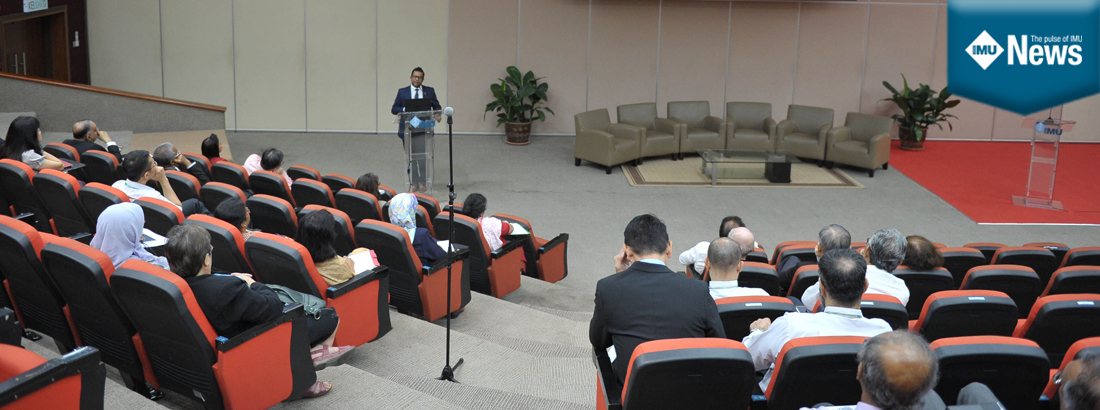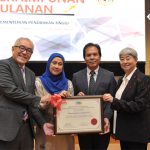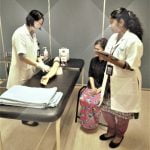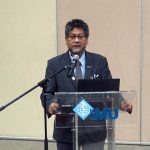Imagine yourself living in an era where robots takes over the jobs of nurses, doctors, and other healthcare professionals, having genetic test revealing the day of your death, and artificial intelligence taking over the whole healthcare industry. These might all seem remote now but undeniably this is the future of medicine that technological development might bring upon us. Sooner or later, the whole areas of our lives will be transformed through various digital technologies such as artificial intelligence, robotics, virtual reality, and nanotechnology. Biomedical knowledge is growing at an unprecedented rate. Today, technology has been incorporated into the provision of healthcare and medicine on a global basis. The fast-paced development in technology has revolutionised healthcare and introduced the age of digital medicine, from disease prevention and detection, to treatment and monitoring. Gone are the days when healthcare was confined to a doctor’s office or a hospital.
As part of the IMU Book Project, in conjunction with the IMU 25th Anniversary celebration, the Institute for Research, Development, and Innovation (IRDI) had successfully organised a seminar titled “Will Health Professionals and Community Embrace Technology Enabled Care?” on August 8, 2017, at the International Medical University (IMU) Bukit Jalil campus. This is the second seminar following the first seminar on “Roles of the Professoriate and Scholarship in the Community” under the IMU Book project organised by IRDI.
 The primary aim of this seminar was to raise awareness on the new technologies globally and in Malaysia. This is in line with the aspiration of IMU to train future healthcare professionals who are capable and work-ready to serve the global community. The highlight of this seminar was to look into how to prepare a future generation of healthcare professionals to work in an increasingly technology-driven environment and the questions arising during the process. Aside from discussing on recommendations made by world class leaders in technology and education field, issues on how adaptive these future healthcare professionals to not only survive but thrive in a rapidly progressing technology-driven healthcare setting as well as whether the current teaching professionals have adequate tools and know-how to produce adaptive learners were addressed in this seminar.
The primary aim of this seminar was to raise awareness on the new technologies globally and in Malaysia. This is in line with the aspiration of IMU to train future healthcare professionals who are capable and work-ready to serve the global community. The highlight of this seminar was to look into how to prepare a future generation of healthcare professionals to work in an increasingly technology-driven environment and the questions arising during the process. Aside from discussing on recommendations made by world class leaders in technology and education field, issues on how adaptive these future healthcare professionals to not only survive but thrive in a rapidly progressing technology-driven healthcare setting as well as whether the current teaching professionals have adequate tools and know-how to produce adaptive learners were addressed in this seminar. 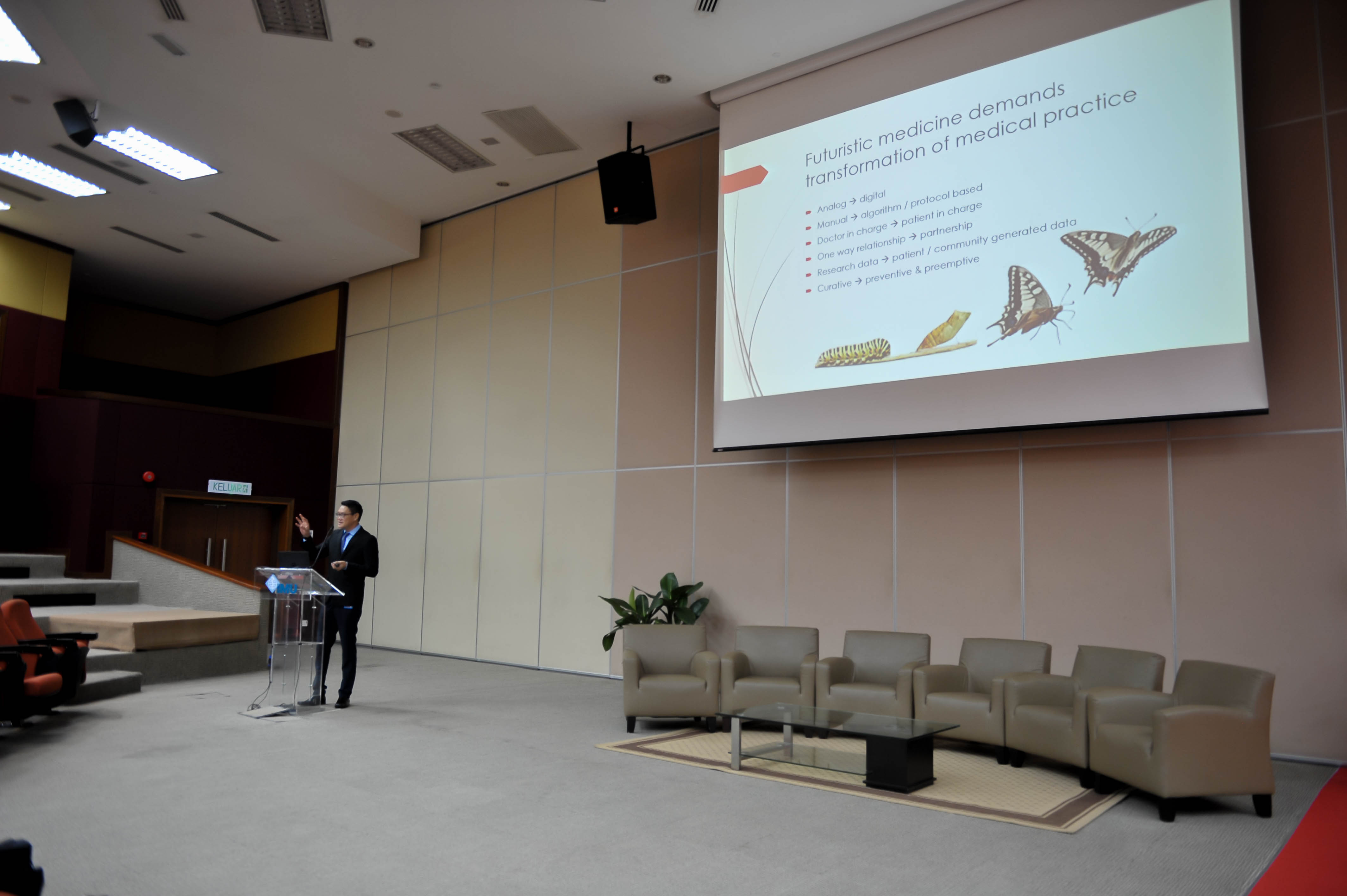 The keynote speakers in this seminar included the authors of the two chapters of the IMU Book, Prof Leong Chee Onn, Head of the Centre for Cancer and Stem Cell Research of IRDI and Prof James Koh Kwee Choy, Head of the Department of Medicine, IMU. In addition, the other speakers were reviewers of the book chapters, namely Dr Dhesi Raja, Chief Scientist in Artificial Intelligence in Medical Epidemiology (AIME) of the Ministry of Health Malaysia and Prof Dr Rozhan bin Mohammed Idrus, the Director of the Global Open Access Learning (GOAL) Centre in Universiti Sains Islam Malaysia. The advisor of the book chapters, Prof Dato’ Dr Jai Mohan who is the Director of the Learning Resources Department of IMU also spoke at the Seminar.
The keynote speakers in this seminar included the authors of the two chapters of the IMU Book, Prof Leong Chee Onn, Head of the Centre for Cancer and Stem Cell Research of IRDI and Prof James Koh Kwee Choy, Head of the Department of Medicine, IMU. In addition, the other speakers were reviewers of the book chapters, namely Dr Dhesi Raja, Chief Scientist in Artificial Intelligence in Medical Epidemiology (AIME) of the Ministry of Health Malaysia and Prof Dr Rozhan bin Mohammed Idrus, the Director of the Global Open Access Learning (GOAL) Centre in Universiti Sains Islam Malaysia. The advisor of the book chapters, Prof Dato’ Dr Jai Mohan who is the Director of the Learning Resources Department of IMU also spoke at the Seminar. 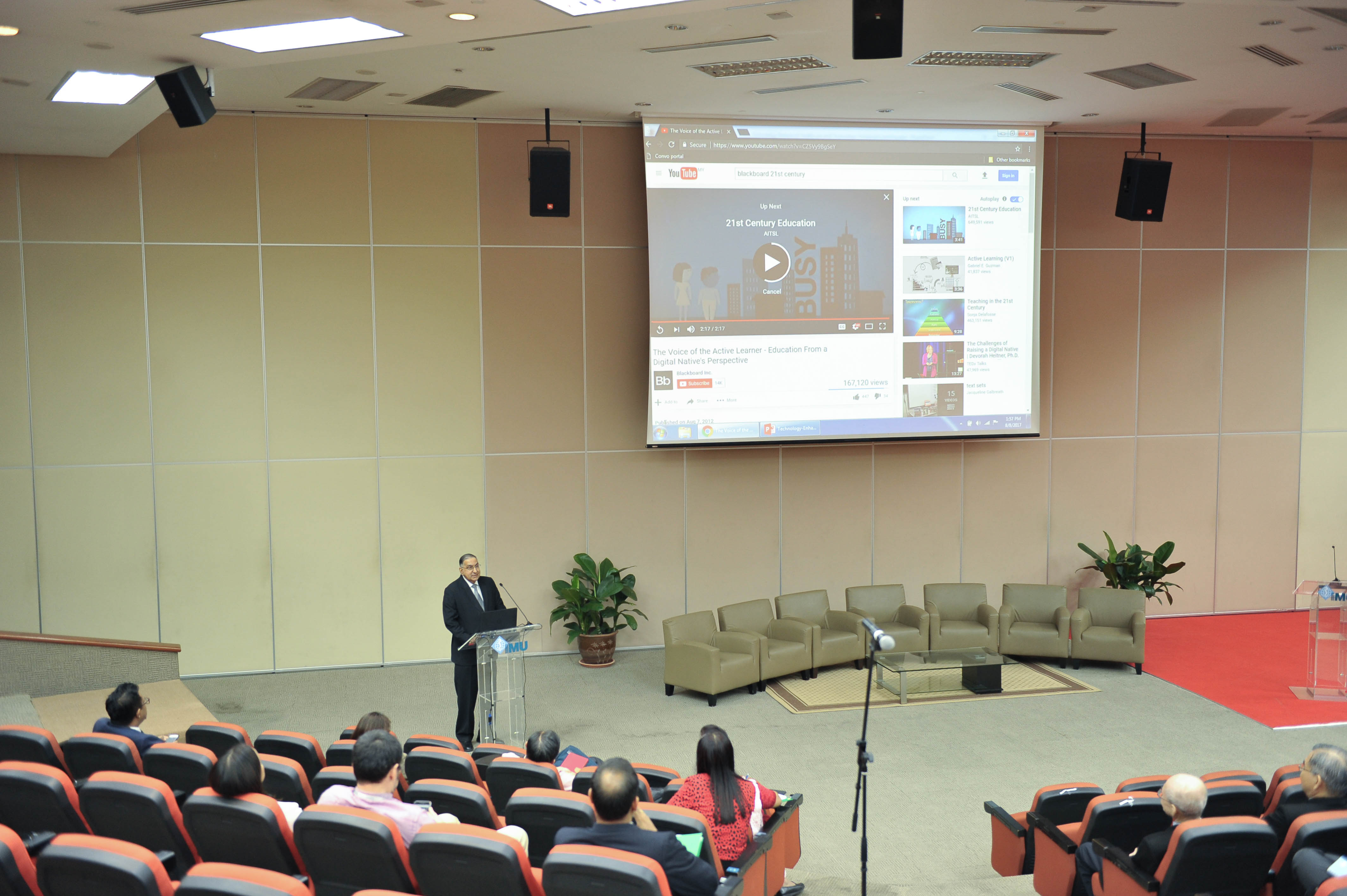 In this seminar, Prof Leong delivered his talk titled “Inspirational Learning: Towards Learning with Sustained Impact”, deliberating on the level of passion and inspirations the young graduates are having for their own professions. Prof James addressed the issue of re-examining the IMU medical curriculum to meet the demands of technology driven healthcare systems in producing doctors for a new century. The talks were followed by three plenaries focusing on technology enabled healthcare. Dr Dhesi gave an interesting talk on artificial intelligence in medical epidemiology while Prof Dr Rozhan narrated on humanising technology via enabling environments. This was followed by a talk on technology-enhanced healthcare and technology-enhanced learning by Prof Dato’ Dr Jai Mohan. Besides that, there was also a forum on “How Ready Are We with Technology-enhanced Health Care?” moderated by Prof Abdul Aziz Baba, the Vice-Chancellor of IMU.
In this seminar, Prof Leong delivered his talk titled “Inspirational Learning: Towards Learning with Sustained Impact”, deliberating on the level of passion and inspirations the young graduates are having for their own professions. Prof James addressed the issue of re-examining the IMU medical curriculum to meet the demands of technology driven healthcare systems in producing doctors for a new century. The talks were followed by three plenaries focusing on technology enabled healthcare. Dr Dhesi gave an interesting talk on artificial intelligence in medical epidemiology while Prof Dr Rozhan narrated on humanising technology via enabling environments. This was followed by a talk on technology-enhanced healthcare and technology-enhanced learning by Prof Dato’ Dr Jai Mohan. Besides that, there was also a forum on “How Ready Are We with Technology-enhanced Health Care?” moderated by Prof Abdul Aziz Baba, the Vice-Chancellor of IMU. 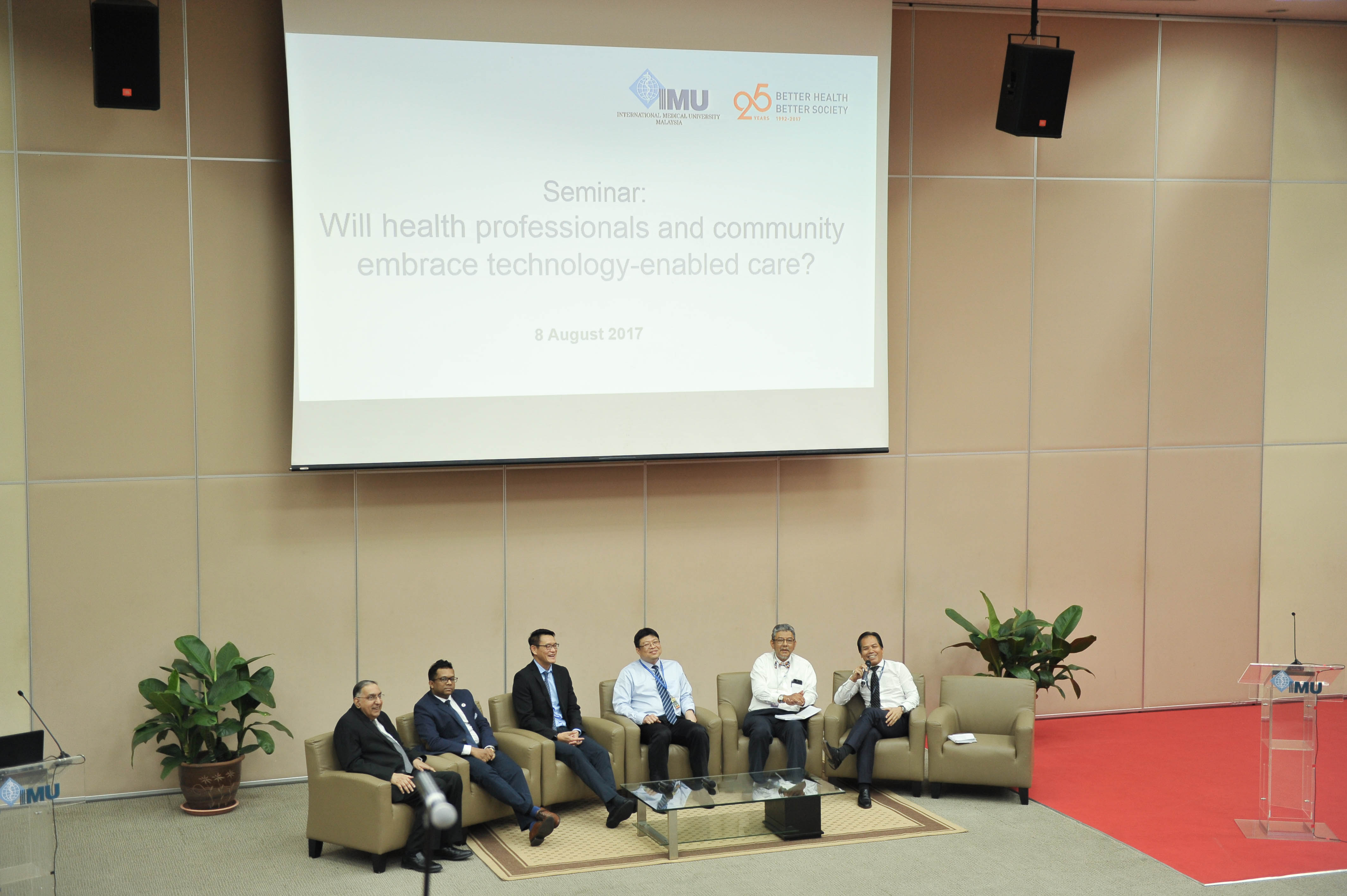
It was remarked in this seminar that technology disruption has changed the very nature of our medical practice. Personalised genomics, nanotechnology, automation, robotics, embedded sensors, telemedicine, telemonitoring, artificial organs, 3D printing of biomaterials and drugs, full physiological simulations, artificial intelligence, electronic decision support systems, and mobile medical apps are some of the new technologies that have been or are being introduced in the healthcare practice. For instance, hundreds or thousands have access to their genetic data, revealing what medical conditions they are susceptible to. Wearable devices also allow us to measure vital signs and health parameters everywhere we go at any time.
Disruptive technology in the healthcare industry has rendered a futuristic medicine which is more technology driven and demands transformation of medical practice. The futuristic medicine is anticipated to be more digital, algorithm or protocol based, and patients are more in-charge. It is thus essential to re-examine the current medical curriculum to meet these demands of transformed healthcare systems in order to produce doctors for a new century. Our current medical education has been made a part of the university with scientific foundation, academically oriented hospitals, and research-focused emphasising on the components of clinical skills, investigation, diagnosis, intervention, and treatment of diseases. There is a need for the nature of medical education to become more predictive, preventive or preemptive, personalised, patient-driven, patient-centred, and paperless. 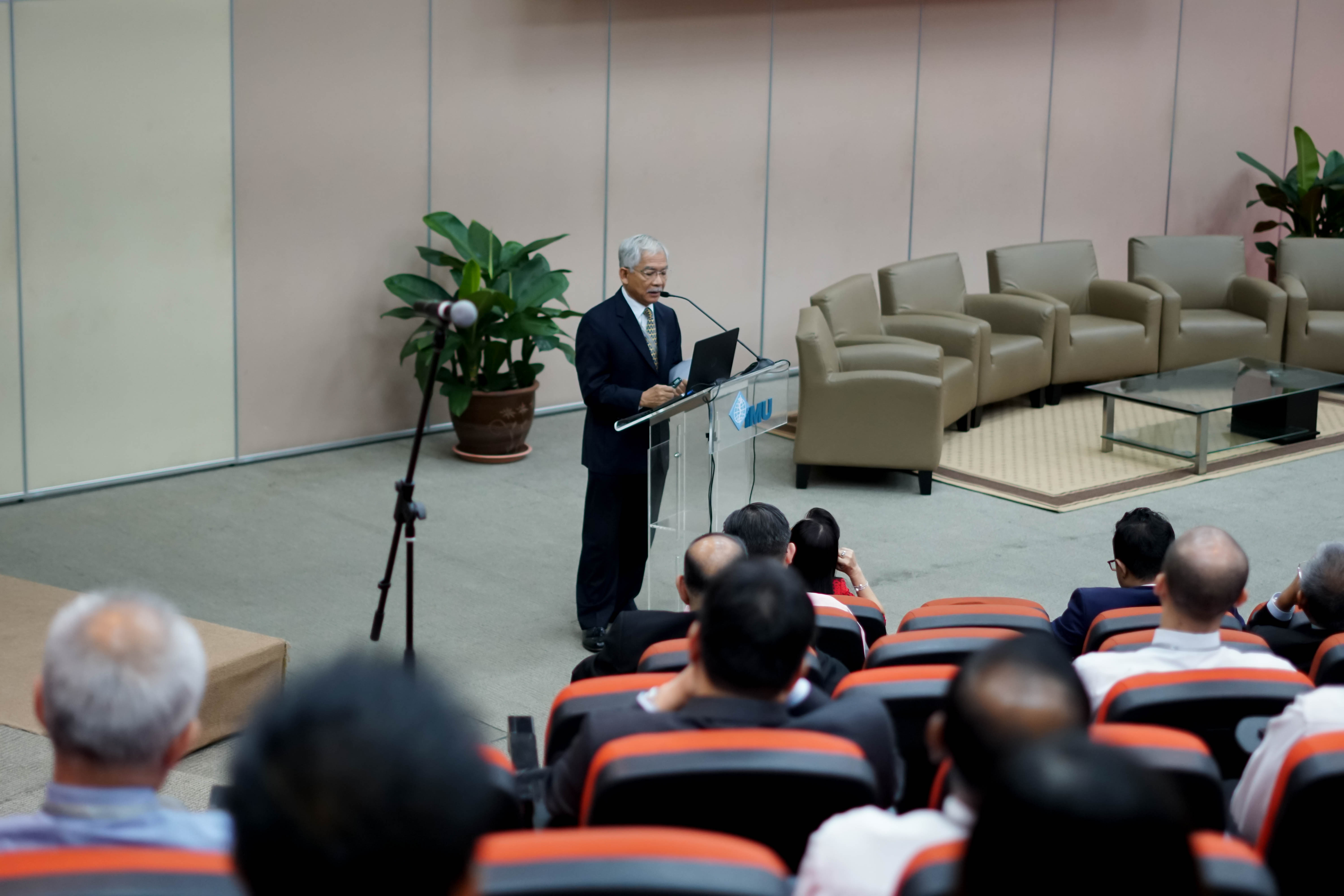
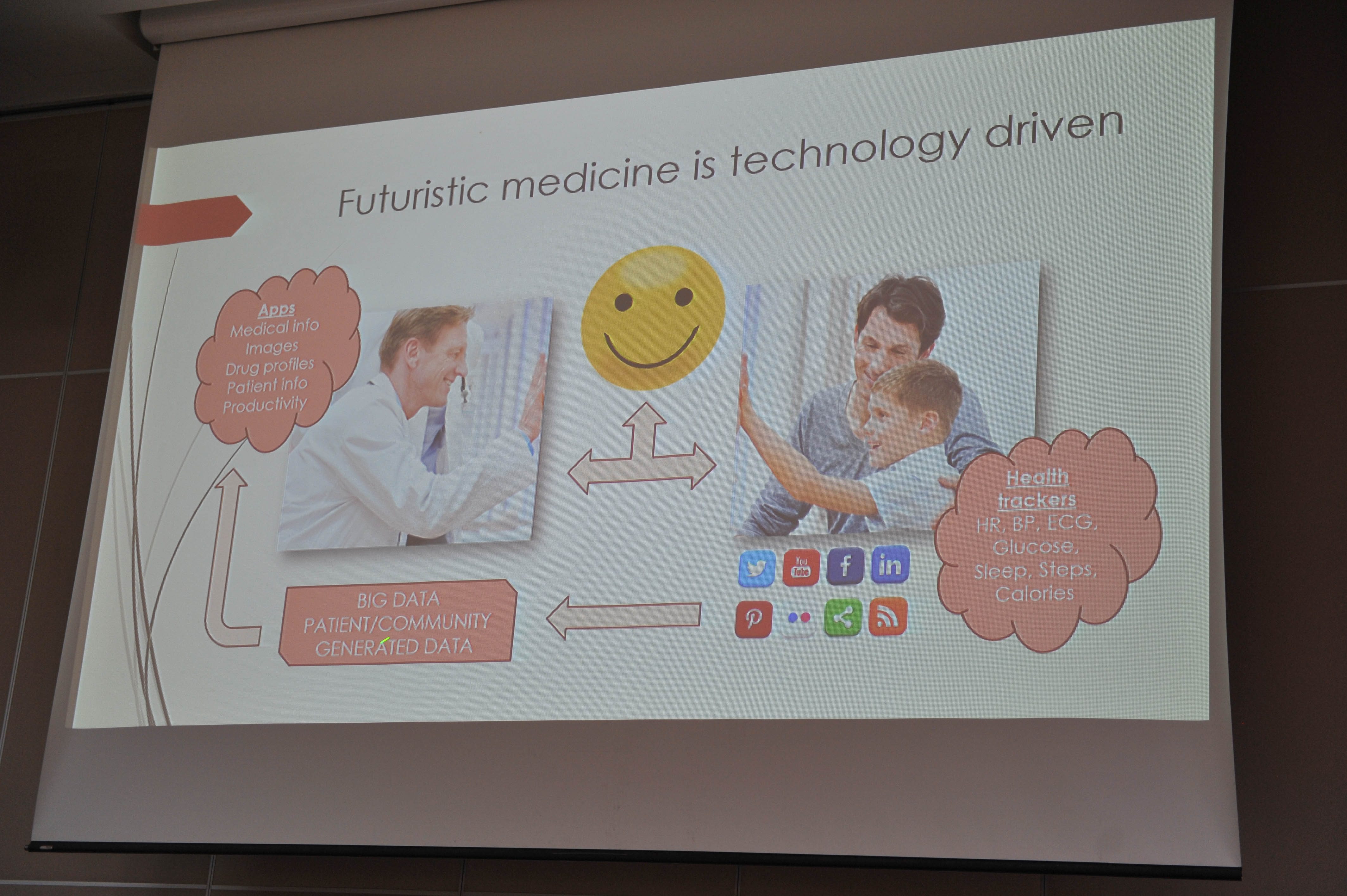 The necessary measures need to be taken by IMU to generate digital age doctors were discussed in this seminar. One of the intermediate measures is to review the medical curriculum with input from external experts and the curriculum should be designed with the introduction of modules such as omics, rules-based patient management, big data, new contents in health systems science, coding and medical technology, ethics related to precision medicine, and core values of medical practice. Besides, other long-term measures should include developing policy changes to bring effects to the curriculum by engaging various levels of management within IMU and relevant medical councils. On top of all, IMU educators should be trained and retrained in innovative curriculum delivery and patient-centric healthcare programmes should be implemented within IMU Healthcare. Some of the note-worthy questions raised in this seminar included IMU’s readiness in producing doctors for the era of precision medicine, especially with regards to the capability of the current curriculum in producing adaptive learners who are ready for the practice in the era of precision medicine.
The necessary measures need to be taken by IMU to generate digital age doctors were discussed in this seminar. One of the intermediate measures is to review the medical curriculum with input from external experts and the curriculum should be designed with the introduction of modules such as omics, rules-based patient management, big data, new contents in health systems science, coding and medical technology, ethics related to precision medicine, and core values of medical practice. Besides, other long-term measures should include developing policy changes to bring effects to the curriculum by engaging various levels of management within IMU and relevant medical councils. On top of all, IMU educators should be trained and retrained in innovative curriculum delivery and patient-centric healthcare programmes should be implemented within IMU Healthcare. Some of the note-worthy questions raised in this seminar included IMU’s readiness in producing doctors for the era of precision medicine, especially with regards to the capability of the current curriculum in producing adaptive learners who are ready for the practice in the era of precision medicine.
In conclusion, change is inevitable especially when we are living in the revolutionary times for healthcare. Like it or not, the digital age of medicine is upon us. We need to have an open mind, positive attitudes, and take proactive steps to embrace change and keep pace with digital healthcare. Another question to ponder upon is how best can doctors and healthcare professionals work hand-in-hand with those sophisticated machines. Nevertheless, face-to-face contact and human interaction is still essential in a doctor-patient relationship and should be supplemented but not replaced by technologies.




